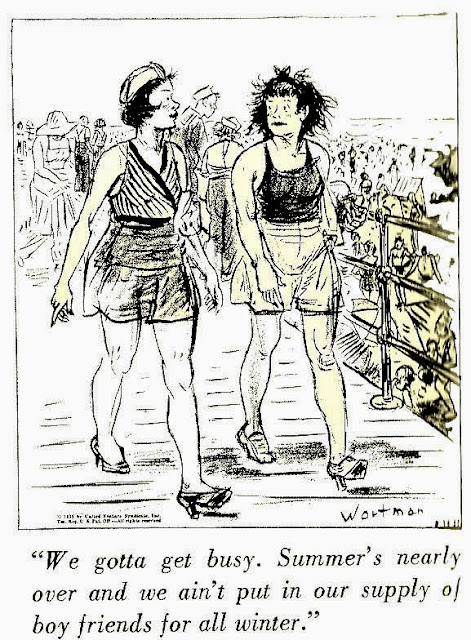Hello Buddies, September 1954
Sir Knight, circa 1958
Ace, March 1964
Al Ross
Hello Buddies, March 1944
Gluyas Williams
Cavalcave, October 1945
Fun House, February 1979
I think the joke is that she was a baby twenty-five years ago, that's why she's topless and in diapers, but that would also mean she wore high heels and a fur coat as a baby. It was published by Humorama so I know they often would buy the drawings and use them in different magazines with different captions. I just made up “When you see me you'll shit your pants. I know I will.”
Gaze, August 1959
Good Humor, October 1964
Bill Wenzel
Knight, March 1968
Laff, December 1948
Man, April 1966
Man, October 1971
Playboy, March 1970
And The Sky Is Gray — This Week’s Links
-
Run, don’t walk, to your nearest internet cafe, in order to get the latest
edition of this week’s links.
The post And The Sky Is Gray — This Week’s Links...
1 hour ago


































































































































